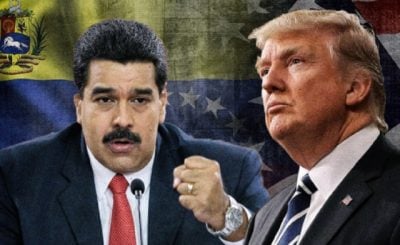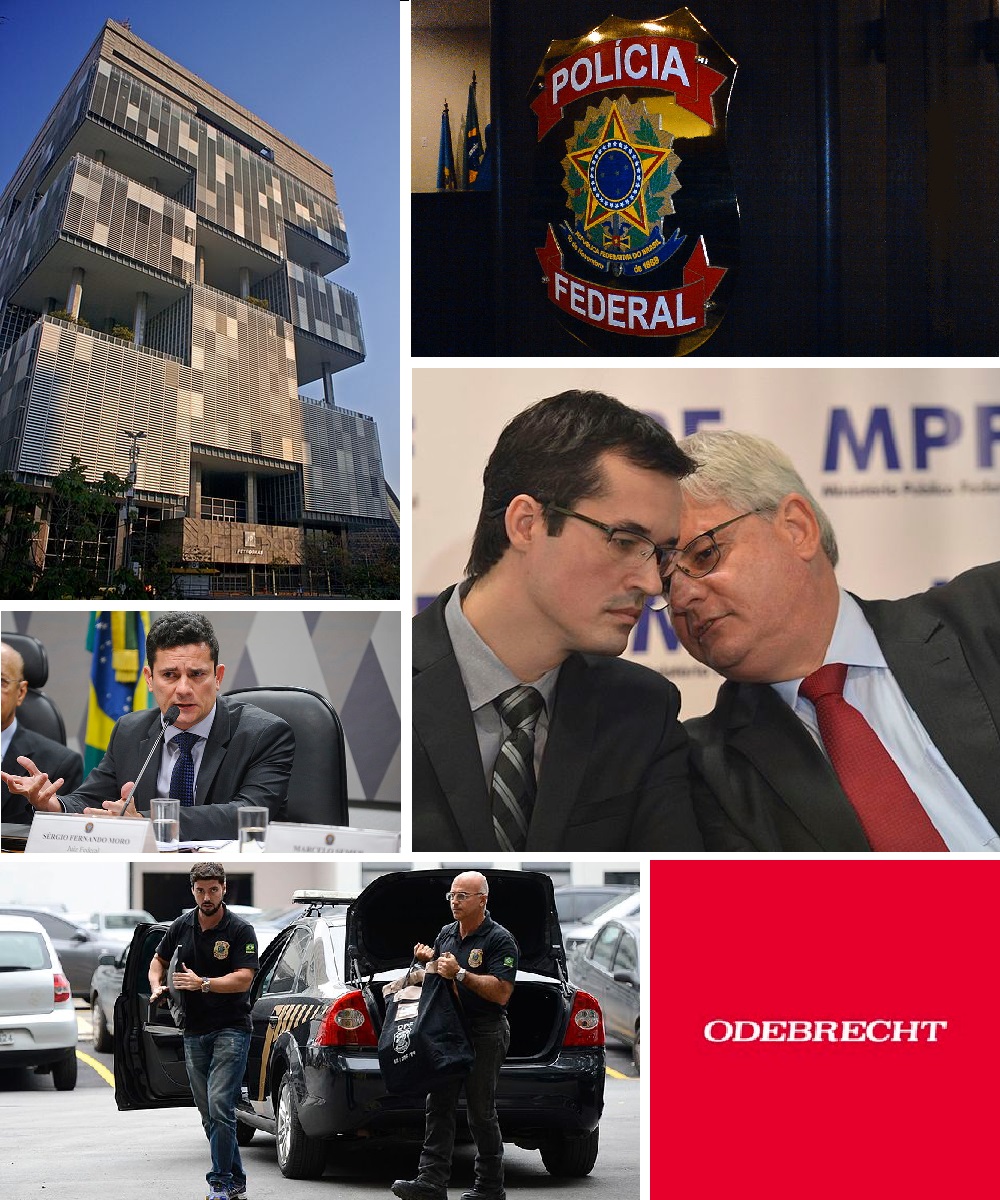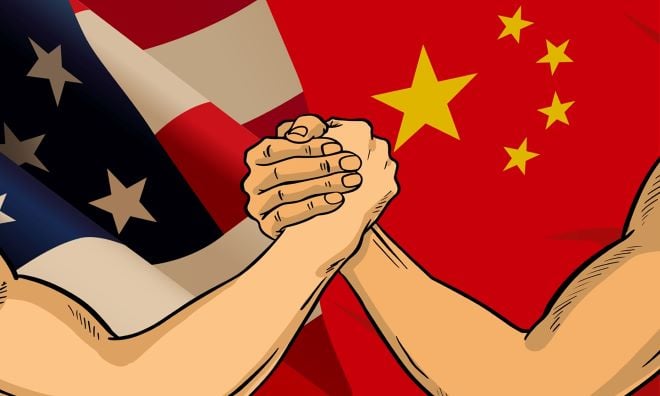
If a question is asked—what has the USA done to topple leftist governments in Venezuela during the 21st century, the answer would be: almost everything. What is more, at this moment it appears determined to take this further. Apart from attacking boats and amassing forces, the USA has done something in shocking violation of international law which should have been condemned by the UN—it has openly offered $ 50 million reward for information leading to arrest of President Maduro.
While the target of USA’s wrath just now is President Nicolas Maduro, who has been President of Venezuela since 2013, earlier the target was his predecessor, the more popular Hugo Chavez, who was even more defiant of the might of the leading superpower.
The impact of these relentless efforts of the USA for the first quarter of this century has been to increase greatly the distress and stress of the people of Venezuela. While various allegations have been used by the USA to justify its aggression and uncalled for interventions in Venezuela, for the greater part these have been used as a not at all credible cover to hide the real cause of controlling the huge oil resources of Venezuela as well as the unwillingness to accept a defiant government in what is regarded by the USA as its unquestioned region of domination and influence.
In 2019 (during the first Trump administration) an effort to stage a coup in Venezuela was made by the CIA which was ironically named Operation Liberty. This was based among other things on trying to split the army and then bring in a stooge of the USA as the new leader. This coup effort failed. Now there is speculation whether there will be another such coup effort to bring in another favored leader of the USA (who has just been given a prestigious award that is highly desired by President Trump for himself), or whether there will be a full scale invasion. There will be very high costs for the people of Venezuela in either case, and what is more, the USA will be asking for a range of new serious problems. There will be no gains in terms of solving the drugs problem in the USA as in any case nothing happening in Venezuela has ever caused this problem in the USA. In fact the drugs problem can worsen as the control exercised by the Venezuelan military over law and order situation will weaken in the case of increasing aggression by the USA.
The best option for Trump would be to reject the aggression agenda (coup or invasion) which is being promoted by a powerful lobby supported by Marco Rubio, the Secretary of State and the National Security Adviser (who has always been very hostile towards President Maduro) and instead go back to the negotiating efforts which were being led earlier by Richard Grenell. At least till the time of writing this, some lesser aggressive option like this is still a possibility. A strong worldwide campaign, and particularly a strong campaign in the USA, can still turn the tide in favor of, if not peace, then at least lesser aggression. One good news to emerge is that there has been considerable criticism of the recent air attacks by the USA on boats which killed several people. In a particularly noble decision, Admiral Alvin Hosley, Commander of US Sothern Command, resigned on October 16, reportedly because of concern over extrajudicial killings.
Going back to much earlier times, people from several countries in Latin America like Cuba and Nicaragua have suffered immensely from the interventions, curbs and sanctions of the USA for a much longer time, causing immense and many-sided distress and stress to people. Even a much bigger country like Brazil has suffered immensely.
In 1964 the left and democratic government led by President Joao Goulart, which had tried to introduce land redistribution, other justice-based policies and nationalization of oil refineries, was ousted in a coup led by the military and other conservative forces which were being supported strongly by the USA. This paved the way for 21 years of military rule characterized by large-scale abuse of human rights and torture on the one hand and plunder by big corporate interests on the other hand.
Later democratic as well as working class forces suffered a big setback with the impeachment of Brazil’s President Dilma Rousseff in 2016, the imprisonment of frontline Presidential candidate Lula da Silva in 2018 and the loss of PT (Workers Party) in 2018 elections.
A recent study has confirmed widespread allegations appearing time and again in Brazil and elsewhere that the USA played an important part in these events through its highly opportunistic use of anti-corruption movement, involving also illegal actions directed against these leaders and their political party.
This study is titled ‘Anti- Corruption and Imperialist Blind Spots—the Role of the US in Brazil’s Long Coup’ and is authored by Brian Mier, Bryan Pitts, Sean T.Mitchell and others. This has been published in Latin American Perspectives.
This study says—
A comprehensive examination of the evidence available, contained in US government statements, English language media accounts and hacked telegram chats among Brazilian prosecutors indicates that the US was widely involved in the ‘long coup’ that removed the left from power in Brazil in 2016 and secured the elections for the far right in 2018.
The leading role in this was played by an anti-corruption movement called Lava Jato or Operation Car Wash. This movement was preceded by big gatherings which educated and trained potential participants in those kinds of ‘anti-corruption’ activities which could target public sector companies and political leaders and could secure international cooperation, particularly US cooperation.
.

Collage of scenes related to the Car Wash Operation (CC BY-SA 4.0)
.
Brazil had discovered new big oil deposits and this may have instigated foreign attempts to harm its public sector oil and petroleum interests, to pave the way for higher private sector role. President Rousseff’s efforts to cut private bank profits may have been another reason for targeting her. A bigger reason may have been the strong role played by the governments of Lula and later Rousseff in protecting trade interests of developing countries, as well as their refusal to toe the US line in developing relations with countries like Iran, China and Russia. The independent stand taken on Palestine may also have irked the USA. Obama’s personal dislike for Lula may have been an aggravating factor too, as also the general hostility to any left government.
As the study by Brian Mier et al tells us, in June 2019, the evidence on US interference via Lava Jato was already so strong that the PT leader in Congress, Paulo Pimenta was able to provide a dossier full of information. It included names of US prosecutors, public statements by government officials, proof of parallel meetings and events, official schedules, proof of informal violation in collaboration of national sovereignty laws and US officials in Brazil getting unrestricted knowledge of government authorities.
In 2020 Intercept journalists published Telegram communications which revealed that the Lava Jato team had repeated secret meetings with 17 (US) FBI agents bypassing national laws and regulations.
On the day that leading Presidential candidate Lula was arrested in 2018, a prominent leader of Lava Jato was heard commenting—this is a gift from the CIA.
While leading US media kept quiet about the US role in all this, the leaders of Lava Jato were given very good coverage to boost their image and present them as great heroes.
Adding up all the evidence, this study concluded,
“Over the past one decade, continuing evidence has emerged that clearly demonstrates that the US government, particularly the Department of Justice, under both Obama and Trump, played a key role in supporting Lava Jato’s politically motivated witch-hunt against the PT.”
Further this study states,
“The US has long used invasions, insurgencies and economic blockades to advance its interests in Latin America. Today it has added the tool of anticorruption to its arsenal.”
All this is deeply disturbing. Firstly, this shows that the US has not lost any of its willingness to illegally oust those democratically elected governments which have been much appreciated for their role in reducing poverty and injustice. The PT government had big contributions in reducing poverty and inequalities, but these gains were rapidly rolled back within a few years of their ouster (now of course PT and Lula are back), with the income share going to the bottom 50% diminishing significantly and the income share going to the top 1% getting boosted in a big way. What should serve as a lesson to other developing countries is how the USA operatives (using local collaborators) could achieve a government change and the imprisonment of highly popular leaders of the ruling party even in a leading country. The legal and other aspects of anti-corruption international agreements were used to strengthen this capacity and this study quotes documents regarding use of anti-corruption movements to destabilize US competitors and enemies.
Another very disturbing aspect is how a very opportunistic use was made of the anti-corruption rhetoric in a way that good leaders were turned into targets for corrupt practices while racketeers got celebrated as heroes. Thus while opposing corruption in sincere and honest ways must be a very important aspect of any democracy, caution should be exercised clearly regarding opportunistic used of any anti-corruption movements.
In 2022 when Luis Inacio Lula again won the intensely contested elections in Brazil, there were widespread allegations that the outgoing President Jair Bolsonaro was trying to stage a coup to reverse the election result and remain in power. What is even more shocking, the coup attempt allegedly included attempts to poison the newly elect President Lula and to also kill a senior judge.
The coup attempt did not succeed, despite the fact that Bolsonaro’s supporters attacked state institutions.
More recently when this coup was being investigated in Brazil, the Trump administration slapped 50% increase in tariffs on all imports to the USA from Brazil. Shockingly, this has been related to the ongoing investigations of the serious charges against Bolsonaro, which his supporters are trying to present as victimization and violation of democratic norms.
Why should not a country investigate such serious charges as a coup attempt also involving attempts to murder? Why should Trump repeat his admiration and concern for the key accused in such a serious case? Why should he inflict punishment in the form of much higher tariffs?
This again brings out the strong bias of the USA in opposing a left President like Lula while going out of its way to use very autocratic powers to not just try to save someone accused of very serious offences but even to use tariffs as a weapon against the entire nation as a part of these efforts.
What is more, one of the sons of the accused Jair Bolsonaro, named Eduardo, has been campaigning with other allies at high levels in the USA for such actions against his own country. When President Trump announced these high tariffs in a letter to President Lula, Eduardo Bolsonaro responded with a celebratory message saying that what they were trying to convey regarding Brazil has received a good response from the USA. In addition these lobbyists also tried for such decisions as imposing US sanctions against the judge presiding over the case of coup attempt and related offences. Here too they succeeded and sanctions were imposed, at least for some time, on the Brazilian Supreme Court judge Alexandre de Moraes.
All this is extremely shocking. The extent to which some members of the Bolsonaro team have gone to harm their own country is reported to have angered even some of those who had allied themselves with the former President Jair Bolsonaro. As this writer has been arguing, in countries on which arbitrary tariffs and other harmful policies are being imposed by the Trump administration, there is need for wider unity to resist this, but here in this example we have seen a very different situation of harming one’s own country. In fact in Venezuela also we see several powerful persons and forces acting against the interests of their own country, and it is these persons and forces which receive powerful support from outside, even in the form of very prestigious awards, apart from other help. This should be widely condemned, and the need for wide national unity in opposing arbitrary interventions and impositions should be asserted very strongly.
*
Click the share button below to email/forward this article. Follow us on Instagram and X and subscribe to our Telegram Channel. Feel free to repost Global Research articles with proper attribution.
Bharat Dogra is Honorary Convener, Campaign to Save Earth Now. His recent books include Planet in Peril, Protecting Earth for Children, Man over Machine and A Day in 2071. He is a regular contributor to Global Research.
Featured image is from Novinite.com
Global Research is a reader-funded media. We do not accept any funding from corporations or governments. Help us stay afloat. Click the image below to make a one-time or recurring donation.


 5 hours ago
4
5 hours ago
4



















.jpg)






 English (US) ·
English (US) ·  French (CA) ·
French (CA) ·